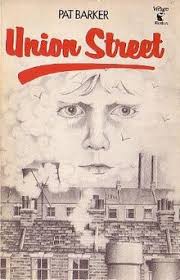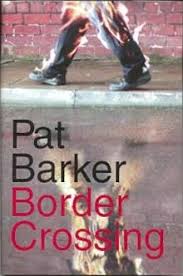Pat Barker Again
Working one’s way through Pat Barker’s novels is not work at all. But it also is neither easy nor comforting. Barker is an extraordinarily perceptive writer and the precision of her prose compels attention. She is beyond thoughtful; her attention is acute. I have come to realize that there is a clinical quality to her writing that is captivating – has me reading more and more – and also just a little bit scary. It is imposing.


Barker’s first big breakout novel was Union Street, a book that I had heard referenced years ago in discussions about “women’s literature.” While it features women, the categorization is inelegant at best. Union Street is much more, even with a relatively simple structure: seven interrelated chapters, each focusing on a different female character, all of whom live on the same street in a northern English city in the 1970s. The women are working class, poor, and range in age from early adolescence to aged and dying. The immediacy of their lives, struggles and circumstances impels the narrative, with the impositions on their lives dominating thoughts and actions. The plot does not move from conflict to resolution; the characters’ lives do not move from conflict to resolution. That’s also how people lead their lives, especially those of limited means. Life is often ongoing struggle.
Throughout, Barker gives the characters voice and agency, even if their language is rough and their agency severely constrained. It is powerful prose, carrying the reader into a world far removed from romance. It is also neither didactic or judgmental It is easy to see why the book, which came out in the early 1980s, generated so much attention. It remains relevant, an eye-opening read.

Published decades later, Barker’s Border Crossing is a frightening novel about the evil that children can do. Is it possible to become “good”? Does time served make a difference? And what might our responsibilities be to those who did something awful as a child? It is high gothic literature.
Set against the backdrop of a dissolving marriage, Tom and Lauren live in north of England. Trying for a child, they’ve grown farther apart or, perhaps, realized that they were never all that close. While on a walk, Tom rescues a young man who attempts suicide. The young man turns out to be a figure in Tom’s past. He is Danny, recently released from prison, who murdered an old woman as a child a decade earlier. Tom is a counselor and had testified about Danny. Tom and Danny start sessions, probing into issues of family, guilt, crime and identity.
Barker’s exploration of the characters is clinical. The dialogue is masterfully presented. In elegant prose, she lays bare the characters innermost feelings without reduction. Nor is the reader enlightened through gimmicks or third-person narration. Instead, the characters come across as complicated, high-functioning, and damaged people. Reading tells us much about them and about Barker, who is unremitting in her push for deeper understanding and truth. It’s high literature and a bit of a thriller, with uncomfortable tension throughout. Border Crossing isn’t diverting – it’s engrossing.
David Potash